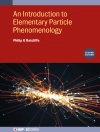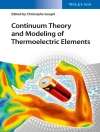Over ?fteen years ago, because of the tremendous increase in the power and utility of computer simulations, The University of Georgia formed the ?rst institutional unit devoted to the use of simulations in research and teaching: The Center for Simulational Physics. As the international simulations c- munityexpandedfurther, wesensedaneedforameetingplaceforbothex- riencedsimulatorsandneophytestodiscussnewtechniquesandrecentresults in an environment which promoted lively discussion. As a consequence, the Center for Simulational Physics established an annual workshop on Recent Developmentsin Computer Simulation Studiesin Condensed Matter Physics. This year’s workshop was the seventeenth in this series, and the continued interest shown by the scienti?c community demonstrates quite clearly the useful purpose that these meetings have served. The latest workshop was held at The University of Georgia, February 16–20, 2004, and these proce- ings provide a “status report” on a number of important topics. This volume is published with the goal of timely dissemination of the material to a wider audience. We wish to o?er a special thanks to IBM and to SGI for partial support of this year’s workshop. This volume contains both invited papers and contributed presentations on problems in both classical and quantum condensed matter physics. We hope that each reader will bene?t from specialized results as well as pro?t from exposure to new algorithms, methods of analysis, and conceptual dev- opments.
Inhoudsopgave
Systems out of Equilibrium.- Computer Simulation Studies in Condensed Matter Physics: An Introduction.- Shake, Rattle or Roll: Things to do with a Granular Mixture on a Computer.- A New Method of Investigating Equilibrium Properties from Nonequilibrium Work.- Numerical Simulations of Critical Dynamics far from Equilibrium.- Soft and Disordered Materials.- Entropy Driven Phase Separation.- Supercooled Liquids under Shear: Computational Approach.- Optimizing Glasses with Extremal Dynamics.- Stochastic Collision Molecular Dynamics Simulations for Ion Transfer Across Liquid-Liquid Interfaces.- Biological Systems.- Generalized-Ensemble Simulations of Small Proteins.- A Biological Coevolution Model with Correlated Individual-Based Dynamics.- An Image Recognition Algorithm for Automatic Counting of Brain Cells of Fruit Fly.- Preferred Binding Sites of Gene-Regulatory Proteins Based on the Deterministic Dead-End Elimination Algorithm.- Algorithms and Methods.- Geometric Cluster Algorithm for Interacting Fluids.- Polymer Simulations with a Flat Histogram Stochastic Growth Algorithm.- Convergence of the Wang-Landau Algorithm and Statistical Error.- Wang-Landau Sampling with Cluster Updates.- Multibaric-Multithermal Simulations for Lennard-Jones Fluids.- A Successive Umbrella Sampling Algorithm to Sample and Overcome Free Energy Barriers.- Computer Tools.- C++ and Generic Programming for Rapid Development of Monte Carlo Simulations.- Visualization of Vector Spin Configurations.- The Blue Gene/L Project.- Molecules, Clusters and Nanoparticles.- All-Electron Path Integral Monte Carlo Simulations of Small Atoms and Molecules.- Projective Dynamics in Realistic Models of Nanomagnets.- Cumulants for an Ising Model for Folded 1-d Small-World Materials.- Embryonic Forms of Nickel and Palladium: A Molecular Dynamics Computer Simulation.- Surfaces and Alloys.- Usage of Pattern Recognition Scheme in Kinetic Monte Carlo Simulations: Application to Cluster Diffusion on Cu(111).- Including Long-Range Interactions in Atomistic Modelling of Diffusional Phase Changes.- Br Electrodeposition on Au(100): From DFT to Experiment.- Simulation of Zn Se, Zn S Coating on Cd Se Substrate: The Electronic Structure and Absorption Spectra.- Simulation of Islands and Vacancy Structures for Si/Ge-covered Si(001) Using a Hybrid MC-MD Algorithm.- Spin-Polarons in the FM Kondo Model.












